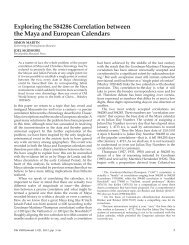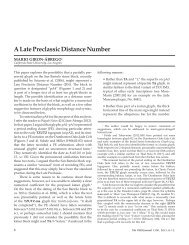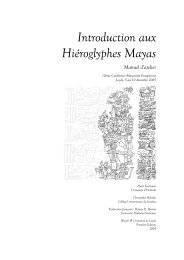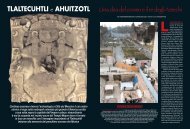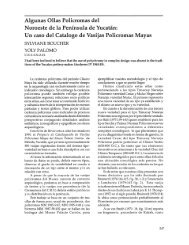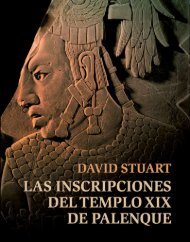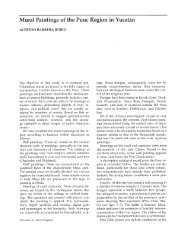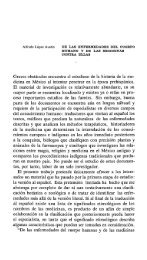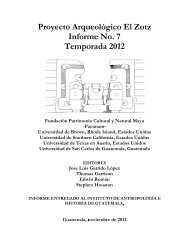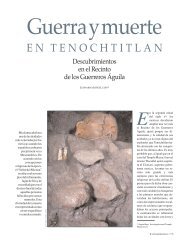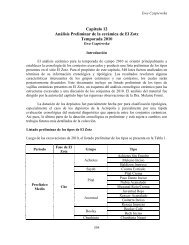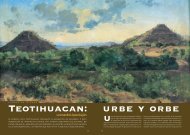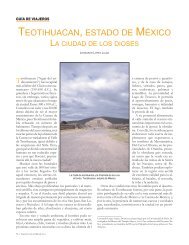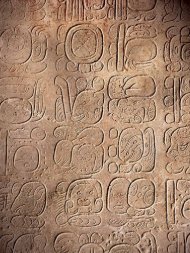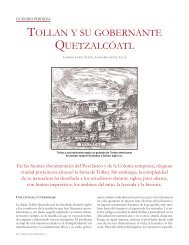Popol Vuh: Sacred Book of the Quiché Maya - Mesoweb
Popol Vuh: Sacred Book of the Quiché Maya - Mesoweb
Popol Vuh: Sacred Book of the Quiché Maya - Mesoweb
Create successful ePaper yourself
Turn your PDF publications into a flip-book with our unique Google optimized e-Paper software.
describe <strong>the</strong> creation <strong>of</strong> all things as if it were occuring in <strong>the</strong> immediate present, time folding<br />
back upon itself to transport <strong>the</strong> reader into <strong>the</strong> primordial waters <strong>of</strong> chaos at <strong>the</strong> very<br />
moment <strong>the</strong> first land emerged:<br />
THIS IS THE ACCOUNT <strong>of</strong> when all is still silent and placid. All is silent and calm.<br />
Hushed and empty is <strong>the</strong> womb <strong>of</strong> <strong>the</strong> sky.... The face <strong>of</strong> <strong>the</strong> earth has not yet appeared.<br />
Alone lies <strong>the</strong> expanse <strong>of</strong> <strong>the</strong> sea, along with <strong>the</strong> womb <strong>of</strong> all <strong>the</strong> sky. There is not yet<br />
anything ga<strong>the</strong>red toge<strong>the</strong>r. All is at rest. Nothing stirs. (<strong>Popol</strong> <strong>Vuh</strong>, p. 67)<br />
This passage is written in present progressive tense, suggesting that <strong>the</strong> narrator sees it<br />
before him as he writes. This is consistent with <strong>the</strong> way stories are told in contemporary<br />
<strong>Quiché</strong> households. The storyteller invites <strong>the</strong> listener to imagine <strong>the</strong> setting <strong>of</strong> his tale, and<br />
nearly always tells <strong>the</strong> story as if it were happening right <strong>the</strong>n, even if it happened in <strong>the</strong><br />
distant or mythic past.<br />
The text <strong>of</strong> <strong>the</strong> <strong>Popol</strong> <strong>Vuh</strong> was kept hidden by indigenous elders for centuries in <strong>the</strong> town<br />
<strong>of</strong> Chichicastenango in Guatemala. So successful were <strong>the</strong>se efforts to preserve early Colonial<br />
texts that two hundred years after <strong>the</strong> Conquest, a Spanish priest living in Chichicastenango<br />
named Francisco Ximénez wrote that <strong>the</strong> people <strong>of</strong> that town possessed many ancient books,<br />
including <strong>the</strong> manuscript <strong>of</strong> <strong>the</strong> <strong>Popol</strong> <strong>Vuh</strong>. Ximénez wrote that <strong>the</strong>se books were kept in<br />
secret so that local Christian authorities would not learn <strong>of</strong> <strong>the</strong>m. Far from being forgotten<br />
tales, he found that <strong>the</strong>se texts were “<strong>the</strong> doctrine which <strong>the</strong>y first imbibed with <strong>the</strong>ir<br />
mo<strong>the</strong>r’s milk, and that all <strong>of</strong> <strong>the</strong>m knew it almost by heart” (Ximénez 1929-31, I.i.5).<br />
Ximénez was able to convince <strong>the</strong> elders who kept <strong>the</strong> <strong>Popol</strong> <strong>Vuh</strong> manuscript to allow him to<br />
borrow it for <strong>the</strong> purpose <strong>of</strong> making a copy.<br />
After Ximénez made his copy, <strong>the</strong> original text was presumably given back to <strong>the</strong> <strong>Maya</strong><br />
although it has not been seen since <strong>the</strong> early 1700s. Today we, in <strong>the</strong> Western world, know <strong>of</strong><br />
this great book only through Ximénez’s transcription, which has become one <strong>of</strong> <strong>the</strong> principal<br />
resources used by European and American scholars who study <strong>Maya</strong> history and <strong>the</strong>ology. It<br />
is unfortunate, however, that <strong>the</strong> great majority <strong>of</strong> <strong>Maya</strong> people have not had access to it for<br />
centuries in <strong>the</strong>ir own language. Literacy has slowly eroded away among <strong>the</strong> contemporary<br />
12



